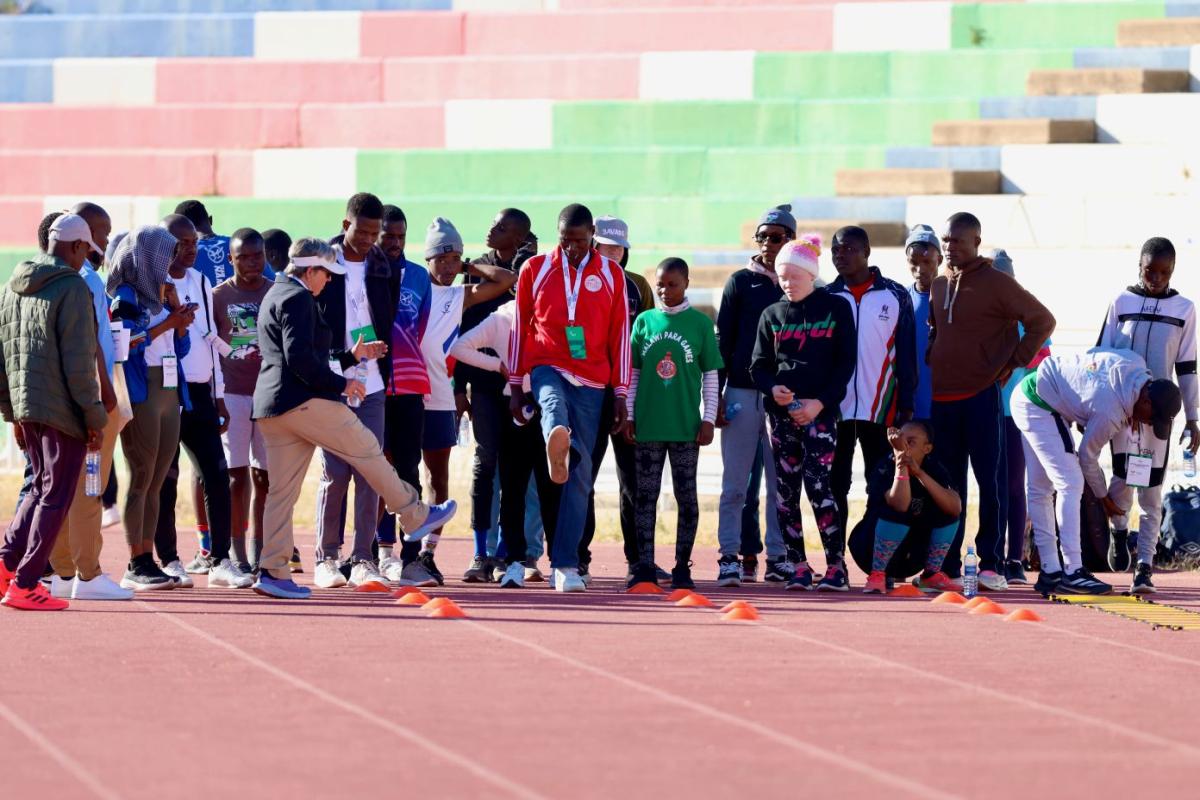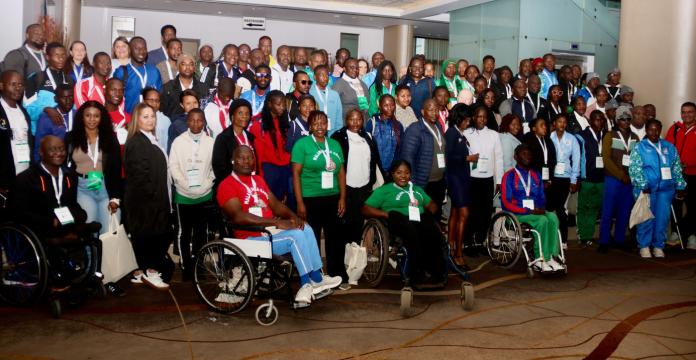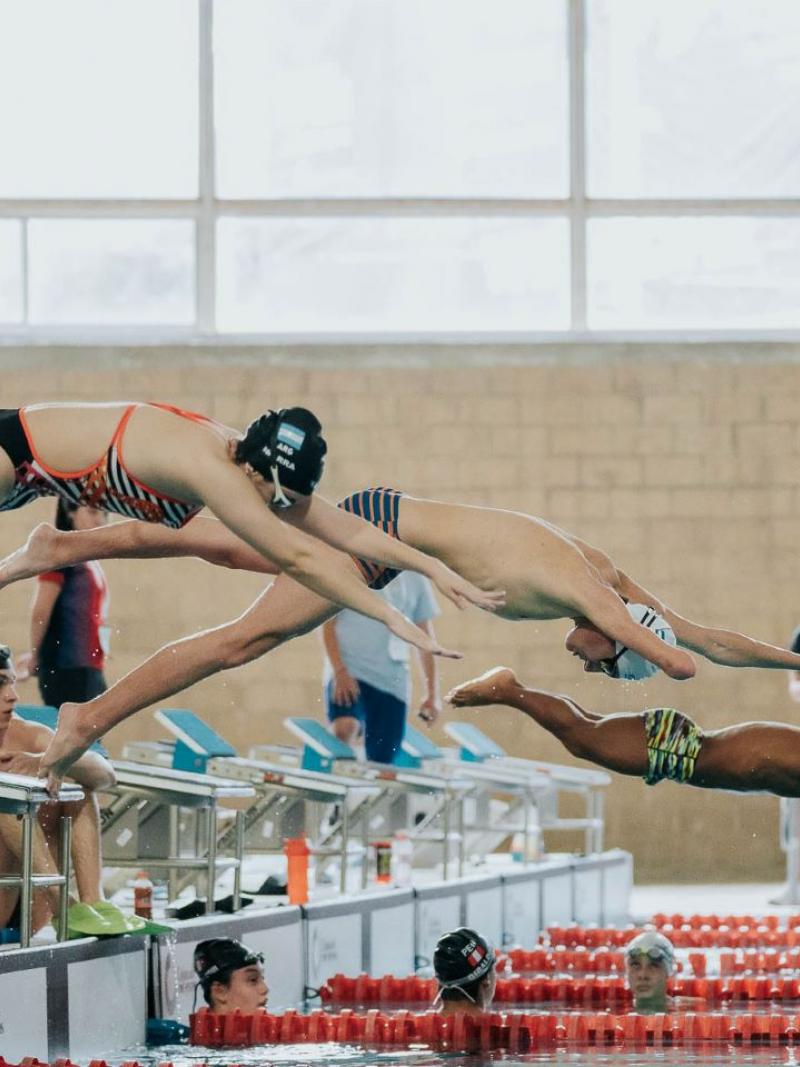Para sport training camp in Namibia aims to further develop talent
Eighty-six people from 16 African countries participated in a three-day training camp, organised as part of the IPC's Sport for Mobility Programme. 09 Jul 2025
As part of the International Paralympic Committee’s (IPC) efforts to further develop Para athletes, coaches, classifiers and technical officials to the highest level, it held a three-day training camp in Windhoek, Namibia, from 30 June to 2 July, bringing together 86 participants from 16 African countries.
Organised as part of the IPC’s Sport for Mobility Programme, the camp offered a comprehensive range of training opportunities in Para athletics and Para powerlifting and was organised with the support of the respective international federations World Para Athletics and World Para Powerlifting.
The Para athletics elements of the training camp focused on athlete development, while the coaching course and technical officials’ course aimed to enhance the skills of coaches and classifiers. The Para powerlifting courses for classifiers and technical officials aimed to build technical expertise and strengthen the support network essential for the growth of the sport across the region.
Kristina Molloy, the IPC’s Chief Membership and Impact Officer said: “As part of our commitment to advance the work and capabilities of our 200+ member organisations around the world, the IPC is proud to deliver a wide range of transformational sport development initiatives under the umbrella of Sport for Mobility.
“Our focus is on the key components that contribute to a Para athletes’ path to success, like training, coaching and classification. Annual events, such as this three-day training camp in Namibia, are targeted to a specific region and designed to develop the fundamental building blocks for long-term success.
“The feedback from athletes, coaches and technical officials in Namibia has been really positive and we look forward to organising similar three-day training camps in the Americas, Asia and Oceania.”
Developing Para athletics
Para athletes attending the three-day training camp took part in track and field training sessions with coaches and were given a chance to explore the history and values of the Paralympic Movement, and explore what it means to be an athlete leader.
Manfred Kpapa, a Para athlete from Namibia, said: “My favourite part of the training was learning about what it means to compete at the Paralympic Games and what is the value of the athlete. I enjoyed the training at the stadium.
“It is important for me to do this training to have more motivation, to get more experience and how I should do my training and how to work better on the track.”
Coaching course participants were provided hands-on and theoretical training, covering planning and training strategies, running mechanics, throwing basics, and long jump techniques. Additional sessions focused on communication, anti-doping, and the role of the coach. Coaches also participated in group presentations and peer feedback sessions, enhancing their ability to support athlete development effectively.
The World Para Athletics (WPA) technical officials course educated participants on the sport’s rules, ethics, and risk management. Participants received training on equipment use, venue set-up, and regulations for track and field events. The course concluded with a practical workshop and final examination, ensuring that officials were well-prepared to support future competitions.
Catherine Louise Sellers, an instructor of the WPA coaching course highlighted the positive engagement of participants: "Our students have been wonderful. They have been engaged, they want to learn, and they have been sharing with us and with each other.
“My hope for the students is that they continue to learn. A coach is constantly learning. They have to learn new things, new techniques come out, new prosthetics come out, new equipment comes out, so they have to learn to adapt to that. As long as they keep learning, they keep growing, and the Movement will continue to grow. We want more representation around the world, and by coming here, that's what we are doing."
Strengthening Para powerlifting
With Africa boasting two of the top five medal winning nations in Para powerlifting at the Paris 2024 Paralympic Games, the continent has proven there is a strong pool of talented athletes.
To support the development of the sport in the region further, a classifier course covered athlete evaluation, classification criteria, safety assessments, and practical evaluations. Meanwhile, the technical officials course included weigh-in procedures, judging, marshalling, and lift challenges. These sessions are key to expanding the pool of qualified personnel to support Para powerlifting events across the region.
Alieu Mansaray of Sierra Leone, who participated in the Technical Official World Para Powerlifting course, was motivated to put his newly acquired knowledge into practice. “I want to go to my country, serve as an ambassador to develop the sport of Para powerlifting and to help those who are less privileged to improve.”
Previous training camps as the one held in Namibia were held in Tokyo, Japan, in 2024 targeting National Paralympic Committees and Para athletes from Asia, and Guadalajara, Mexico, in 2023 focussed on participants from the Americas.






